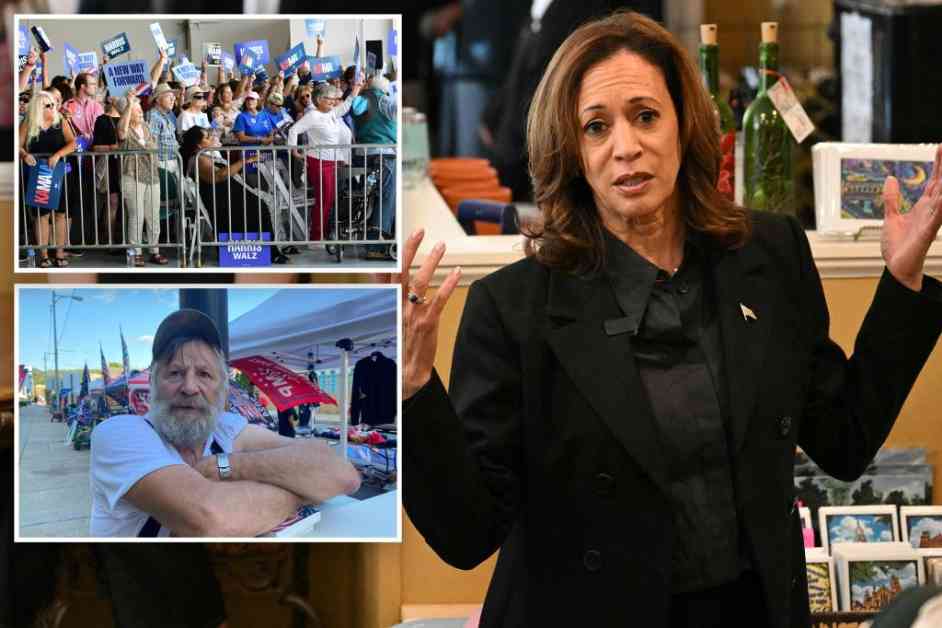Harris Faces Criticism for Exclusive Campaign Events in Pennsylvania
Kamala Harris, the Vice President of the United States and Democratic presidential candidate, faced criticism during her recent visit to Pennsylvania for hosting invite-only campaign events that excluded a significant portion of the working-class population. Her decision to hold exclusive gatherings in Johnstown and Wilkes-Barre raised concerns among voters who felt left out of the political process.
The city of Johnstown, once a union Democratic stronghold, has experienced a shift towards Republican support in recent years following the decline of high-paying union jobs. As Harris arrived at the Johnstown airport, she was greeted by hundreds of supporters chanting her name. However, the event was invitation-only, leaving many residents feeling overlooked and excluded.
Exclusive Events Raise Eyebrows Among Working-Class Voters
One of the key criticisms leveled against Harris was her choice to hold invite-only events in Johnstown and Wilkes-Barre, areas with a significant working-class population. Ed Luce, an undecided voter who attended a Trump rally in Johnstown, expressed disappointment at not being able to hear Harris’s message directly. Luce highlighted the importance of engaging with the working poor population and addressing their concerns.
Greg Dadura, vice president of United Steelworkers Local 2632, emphasized the Democratic Party’s historical support for union organizing but acknowledged that many of his union members had shifted their support to Donald Trump. Despite his belief in the Democratic Party’s values, Dadura recognized the challenges of appealing to working-class voters who had been left behind in the post-industrial economy.
Calls for Inclusivity and Transparency in Campaign Events
The decision to host invite-only events in Johnstown and Wilkes-Barre sparked a debate about the importance of inclusivity and transparency in political campaigns. AJ Hasley, a veteran and cook who plans to vote for Trump, criticized Harris for excluding working-class individuals from her events. Hasley emphasized the need for candidates to reach out to a diverse range of voters and engage with communities that may not traditionally support their party.
Arriana Dixon, a server who plans to vote for Harris, expressed disappointment at not having the opportunity to attend one of the Vice President’s events. Dixon highlighted the significance of hearing directly from political candidates and engaging in meaningful discussions about important issues such as border security.
Phyllis Champine, a supporter of Harris, expressed her desire to see the Vice President return to Johnstown and engage with the community in a more inclusive manner. Despite not being able to attend Harris’s event at the bookstore, Champine remained hopeful that the Vice President would prioritize engaging with a broader range of voters in the future.
In conclusion, Harris’s decision to host exclusive campaign events in Pennsylvania has raised important questions about inclusivity and transparency in political campaigns. As the election season progresses, it will be crucial for candidates to engage with a diverse range of voters and address the concerns of working-class communities.
